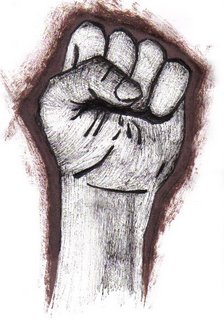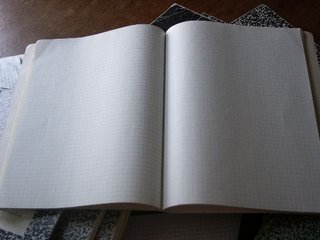A commercial I have seen on TV recently: A shoe commercial with a loud and chaotic stream of angry, physically-absurd images with pictures of running shoes and the word DEFY over and over again:
Defy limitations!
Defy electricity!
Defy anything!
What a ridiculous lot of furious fools my generation is! And now they are using our fury to advertise shoes. We always want to raise a fist of angry revolt in the air. One must revolt in order to establish one's identity (a tradition we learned from our parent's generation). But we can't find much worth rebelling against. We are a nation of rich and unrestricted people, but still we must defy something. We must loose control of our passions and strike out against anyone who dares oppress us, but no one cares about us enough to oppress us, which infuriates us even more.
The ideal young revolutionary of our generation is like an uncaged animal that unleashes blind lust or fury at anything that nears it. What other kind of revolutionary could we expect in a world with nothing worth believing in? It is only the insightful revolutionaries who truly identify that hateful oppression they riot against. They recognize the oppressor within themselves, in their own unrestrained passions. What else to do but turn that limitless fury in on itself? So they unleash all fury on their own angry selves, often killing a schoolyard full of random classmates with them, creating a horror so beautiful and rebellious that the rest of us can only watch with awe and envy.
The school shooter is not an isolated phenomenon, he is the final product of the Revolution. But alas, most revolutionaries sell out too soon. Not many are willing to become martyrs for the cause. Instead we fade away into hedonism and self-loathing narcissism. Corporations harness the sentimentality of our fading revolution to sell us running shoes.
What a miserable generation of old people we will become! Not only did we sell out like past generations, but we didn't even know what we were trying to do. Our grandparents tried to create an orderly and decent society, and failed. Our parents were revolutionaries for peace and love, but they all sold out. And what about us? We gave ourselves over to every desire. We shook a defiant fist at everything and nothing. What was our revolution? What was our struggle? Perhaps we wanted to end up empty inside. If so, we may have been the first American generation ever to succeed in its struggle.



